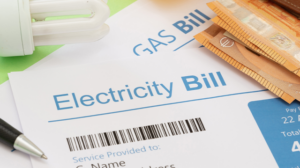The government is looking to subsidise variable electricity bills for July and August by imposing a levy on gas imports, following large increases in the last period.
A meeting led by Prime Minister Kyriakos Mitsotakis on the electricity issue was held Tuesday morning at the Maximos Mansion. According to reports, an initial discussion was held and the data on the rise in wholesale prices in July and August were presented. Relevant announcements and specific measures are expected tomorrow morning from the Minister of Environment and Energy Theodoros Skylakakis.
Indicative of the government’s stance is yesterday’s statement by government spokesman Pavlos Marinakis during the briefing of political editors that “if there is a need to support business citizens in the event of excessive increases in electricity, the state will be here”, adding, however, that “we are not at that point”.
Reports said that any support measures undertaken by the government to smoothen the impact of the rise in electricity prices will not be horizontal and will be given according to specific criteria with emphasis on vulnerable households.
However, extreme fluctuations in the wholesale market are also in the sights of the energy regulator which since last Thursday has been putting the offers of power providers under the microscope in order to document how they are structured and check for any speculative games.
As part of this audit, all the power generators, namely executives from PPC, Metlen, Heron and Elpedison, were invited this morning to the offices of RAEY in successive meetings to provide additional information and clarifications on the bids of their units on the days when the extreme fluctuations in wholesale prices were recorded, within the same day. The Authority has requested the Energy Exchange for a detailed report of the hourly bids submitted by the providers during the last period.
Market officials, however, have made no secret of their annoyance at the ease with which the government is targeting power providers. As they point out, in a free energy market, prices are shaped by supply and demand; when it increases, they go up and when it decreases, they go down. As they point out, with 30 euros on gas and facing a purely cyclical phenomenon, such a drastic measure as a tax on the excess revenues of producers is not justified.
Almost seven months after the extraordinary measures of the geopolitical crisis were lifted, it turns out that the markets are unpredictable. The problems in the interconnected markets of Eastern and Central Europe are reaching as far as our neighbourhood as a queue and are also affecting the Greek wholesale market, at the same time as demand due to the heatwave is pushing up energy prices. “The sharp rise in prices can be explained by a number of factors. However, the uneven nature of the shock underlines that small turbulence in one part of the system can create large and similar effects over a wider latitude,” Nikos Tsafos, an adviser on energy issues to the prime minister, said yesterday.
It is indicative that last week (8-14 July) the average market clearing price on the Energy Exchange was 143.97 euros per MWh, recording a 71-week high. The average price was up 38.42% from the immediately preceding week (1-7 July). In fact, last week the gap between minimum and maximum wholesale price was huge, ranging from EUR 20/MWh to EUR 600/MWh in the evening hours when expensive gas units enter the system. Today, although the average price is decreasing, the maximum price reaches 650 EUR/MWh.
Ask me anything
Explore related questions





